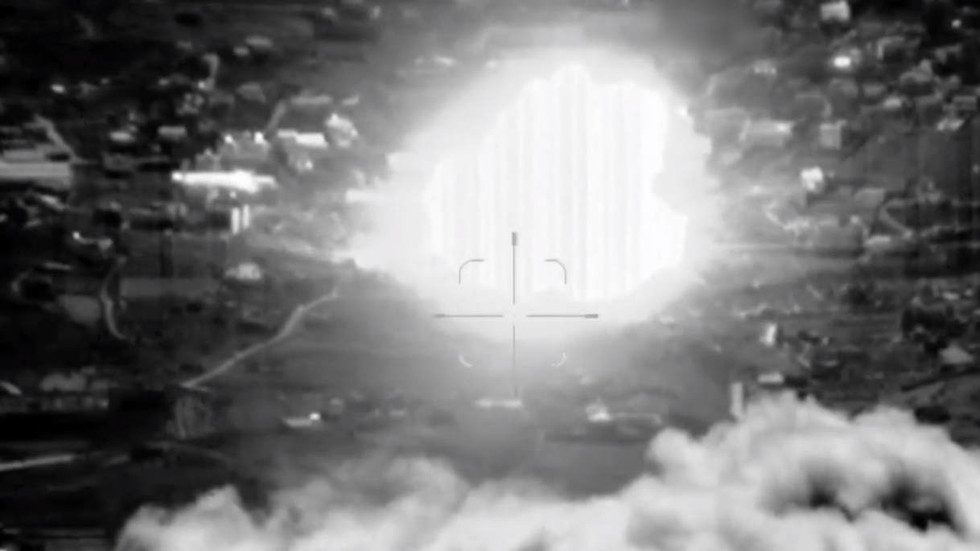
The attack came in response to missiles fired toward the northern part of the country overnight, according to the IDF

© Telegram/idfofficial
Israel has reported launching airstrikes deep into Lebanese territory, targeting Hezbollah positions across the country as tensions in the region soared after Iran attacked Israel over the weekend.
The Israel Defense Forces (IDF) posted to its Telegram channel footage of one of the attacks, stating that it shows fighter jets striking a “significant” Hezbollah weapons manufacturing site in the area of Nabi Chit, close to the Syrian border. The IDF also reported having bombed a number of military structures belonging to Hezbollah in the area of Jbaa in southern Lebanon, as well as the group’s infrastructure and outposts in several other areas.
According to the Israeli military, the attacks came in response to missiles being fired from Lebanon toward northern Israel overnight in the areas of Kfar Blum and Hanita. No injuries were reported in those strikes.
Earlier on Sunday, Hezbollah admitted it had joined in the Iranian drone and missile attack against Israel and twice launched airstrikes towards the occupied Golan Heights. Tehran’s attack came in retaliation for an airstrike on Iran’s consulate in Damascus, Syria earlier this month that killed several high-ranking Iranian military officials. Tehran blamed the attack on Israel.
Iran-backed Hezbollah, a pro-Palestinian militant group and one of the most influential political factions in Lebanon, has had near-daily exchanges of fire with Israeli forces since the start of the Israeli-Hamas war in Gaza last October.
READ MORE: Israel to coordinate response to Iranian attack with allies – NYT
According to estimates by the outlet AFP, at least 363 people in Lebanon have been killed in the hostilities so far, including at least 70 civilians, while tens of thousands of people have reportedly fled their homes on both sides of the Israeli-Lebanese border.
Hezbollah will stop its attacks on Israel after a ceasefire is reached in Gaza, because this front is largely a “supportive” one, the group’s senior politician Hassan Fadlallah said in late February.




